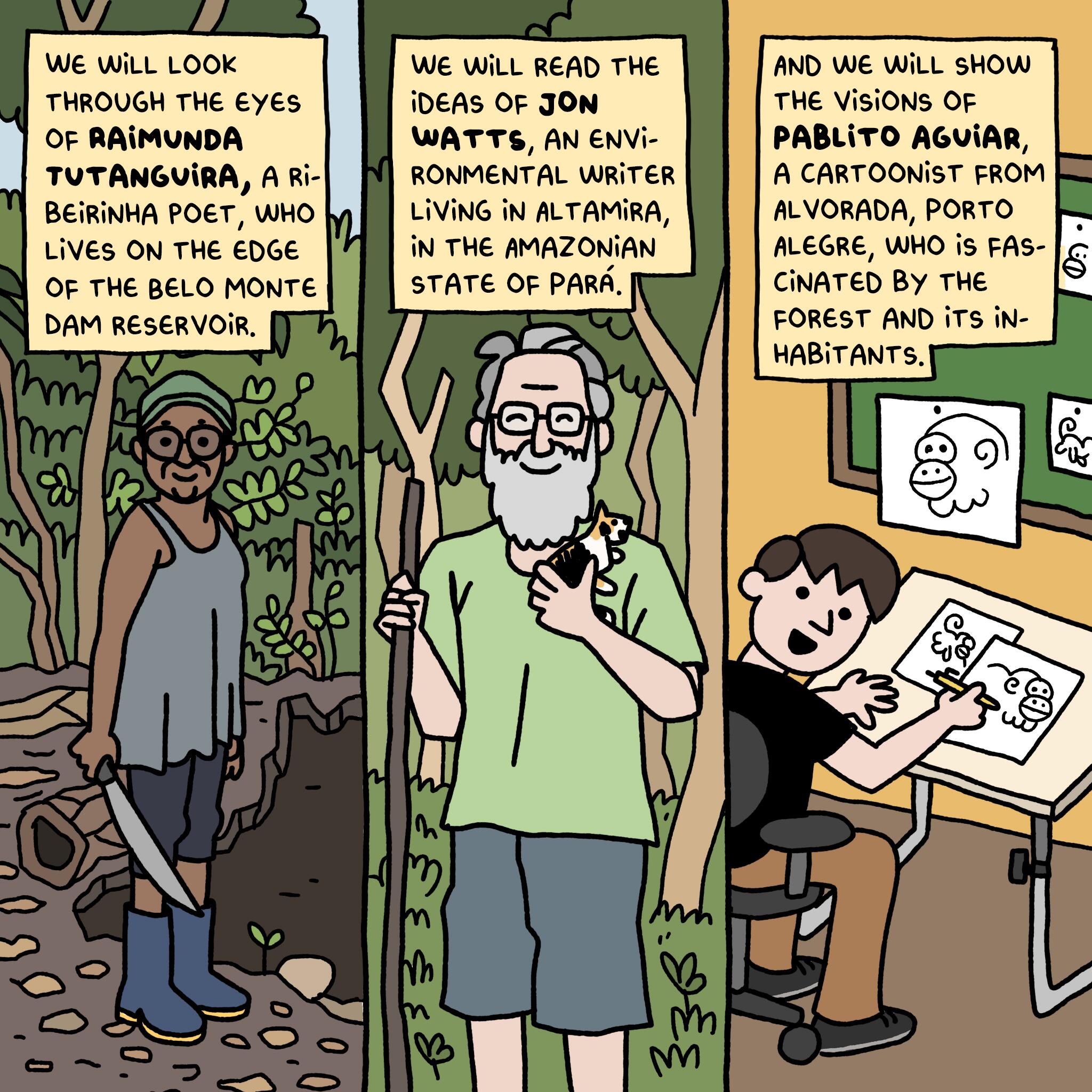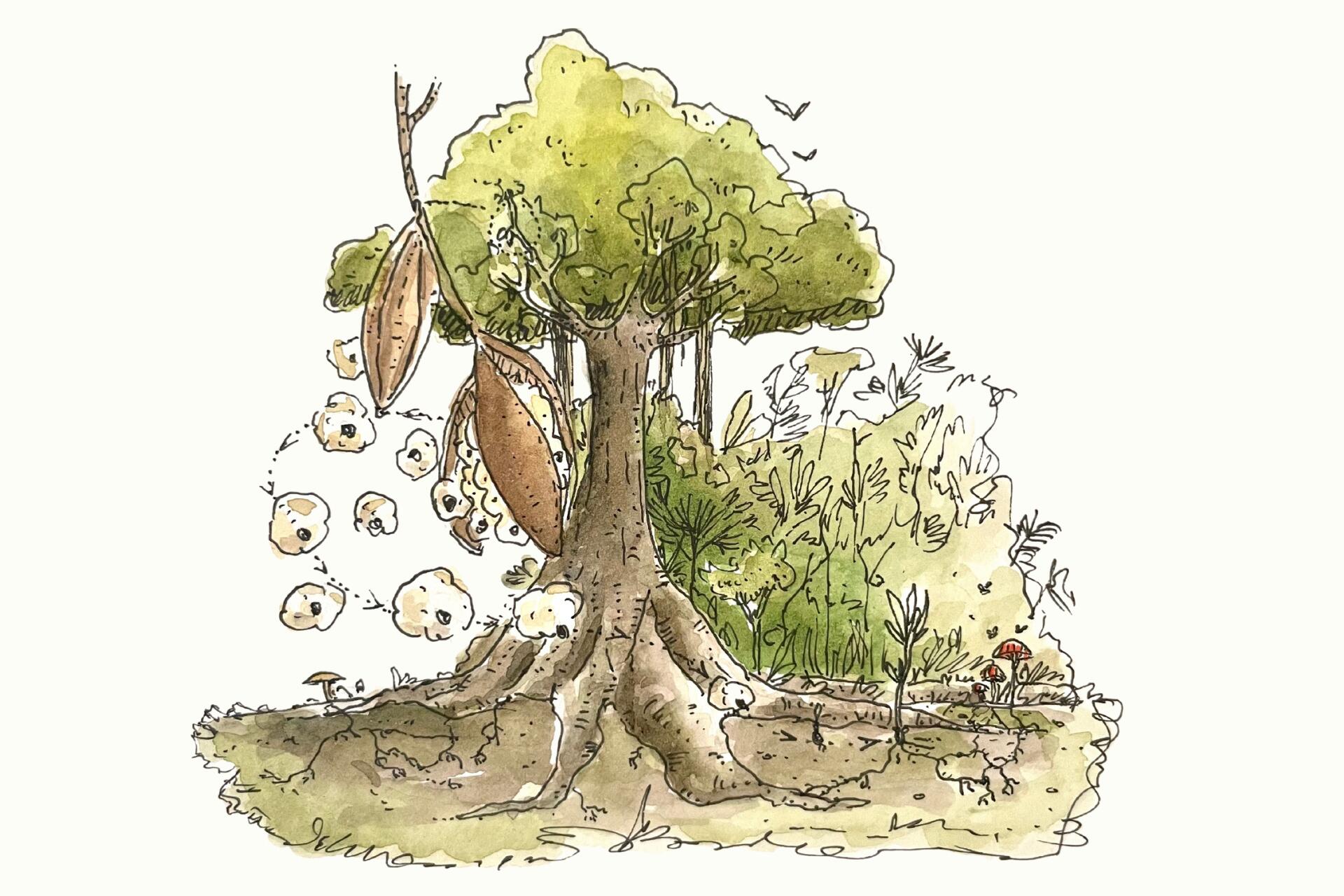I left the Amazon, where the illegal fire season was kicking off, for a one-week trip to the southern tip of Brazil. I departed just a few hours before a cyclone moved in last week. The howling winds kept me awake at night, the windows were shaking and I couldn’t help but imagine how those living in more vulnerable regions and homes were suffering. Yet the next day, most people didn’t seem particularly concerned, even though classes were canceled at public schools. When I expressed my concern with this lack of concern, I got the same explanation over and over from different people: “Oh, last month’s cyclone was far worse than this one.”
It’s easy to imagine that soon – very, very soon – these same people will start to say that last week’s cyclone was worse than today’s. And shortly their conversations could turn to whether yesterday’s cyclone – or the one that hit a few hours ago – was more or less destructive than the one happening now. It sounds as if extreme events are now being normalized in our everyday understanding, but not because of any conscious adaptation to prevent a hostile future for future generations, which is just a few years away, but because of brutal alienation.
Right now, across the planet, there are signs that the climate crisis is picking up pace, something defined a few weeks ago in a report by our cofounder Jonathan Watts as “an emergency within an emergency.” Past experiences with the phenomenon known as El Niño show how devastating it can be to a planet where nature is in a fragile state – or where it has already been turned into land devastated by predatory exploration.
SUMAÚMA was created by journalists who awoke and slept – or didn’t sleep – with news from scientists on the advancing climate collapse and the advancing loss of biodiversity on the planet. Yet they awoke and slept not in Brazil’s major cities, but in the Amazon, where every species is a victim in the war waged against nature and the ruins of the forest are the day’s setting. SUMAÚMA is based on a belief that we are living in the most dangerous time ever for our species on our planet-home. Nevertheless, we paradoxically have a population of humans whose instinct to survive has been nullified in the laboratory of capitalism. People have allowed themselves to become inured to the fallacy that consumption solves everything, like today’s mega-millionaires purchasing luxury bunkers to protect themselves from the impacts of a planet in a climate trance.
We believe this emergency must be used to broaden collective efforts, accelerate public policies, and act. Yet this will not happen as long as we fail to discover how to reconnect the human population with its lost survival instinct. For now, we are between the majority’s zombie alienation and the nihilistic cynicism of those who have already thrown up their hands in defeat. Neither one will prevent cyclones, droughts, fires, melting ice caps and rising oceans. Neither one will keep our children and the offspring of other beings from having a life that is – already – worse.
If nothing is done to prepare our species, the risk of today’s zombies awakening as panicked humans could spell the catastrophe that has been taking on a size not even imaginable in fiction. History holds too many examples of what happens when the masses suddenly wake up to a sense of overwhelming dread. Public policies to enlighten and educate people on what is already happening, right now, and on how we will have to very quickly adapt and become a different kind of people are just as urgent as actions to stop global heating and the destruction of nature. Adaptation must not be confused with alienation. This time, a connection to reality is our only salvation from ourselves.
That is what SUMAÚMA has sought to do in the ten months it has been around: connect its community of active readers to thoroughly investigated, verified, and fact-checked realities from the center of the world. Today, we are happy to report that we have reached a new phase in our growth as a trilingual journalism platform: this week we are launching two creations to help break the zombilescence – aimed not at panic, but rather at informed action.
One of them is the Jargon Buster, in which reporter Claudio Angelo will explain everything our readers need to know to take part in the debate shaping the climate and how the planet looks – as well as our life on it. One of Brazil’s most comprehensive journalists specializing in climate coverage, Angelo has, among other things, authored a book on how humanity has changed the climate (A espiral da morte: como a humanidade alterou a máquina do clima – Companhia das Letras, 2016). Our Jargon Buster starts with an explanation of “carbon credits” – a term that has driven a rush to exploit the Amazon and about which more and more is being (disparagingly) said and very little is understood. Jargon Buster is committed to ensuring that our community of readers can participate in the vital debate on the Amazon with the very best information. And all illustrated by the talented Hadna Abreu, an artist from Manaus whose creations join nature, science, and art.

Our other new feature is a collective creation by a unique threesome, which could only be brought together by the fight for nature: Pablito, Raimunda Tutanguira, and Jon Watts. They have been meeting for months to collectively develop Howler, a more-than-human who is now embarking on a journey of discoveries through the Amazon, who we hope can be followed – and talked about – by kids, teens and adults, used by teachers in classroom discussions, and shared in libraries. It is fiction based on the best in science and journalism, created to talk about reality to those that want to reconnect to it through love.
Howler was born irresistible, restless and, of course, inquisitive. He is like Pablito, a cartoonist from Alvorada, a city in the Porto Alegre metro region, in Brazil’s extreme south, who was fascinated by everything he saw, heard, and felt the first time he visited the Amazon Rainforest, and before he knew it, he was – hurray! – in labor with a Howler Monkey. Mysteries of the forest.
The first best friend this monkey child ever had is Tucandeira, an ant as amazing as Raimunda Tutanguira, a forest-poet from the traditional ribeirinha community who creates worlds with words gestated by nature. After being driven from her island by the Belo Monte hydroelectric plant, Raimunda settled along the shores of the dam’s reservoir with her husband João, and it is from there that she is collectively developing this story with Pablito and Jon Watts, the third element in this trio. An environment reporter and author, Jon was born in London and spent time living in Tokyo, Beijing, and Rio de Janeiro as a correspondent for The Guardian before reforesting pastureland and building a house in Altamira with his life partner.
Howler and the world born with him are the offspring of these three unlikely allies who met while fighting for the Amazon. Here at SUMAÚMA, where we have kept abreast of this long gestation with outbursts of affection, we hope that Howler helps us to reconnect readers of all ages to the powerful force of love for nature – the same love we are also all made of, even when we forget about it.
We are fighting like Howler and Tucandeira, well-informed by Jargon Buster.
Eliane Brum
Sower and Director of Sumaúma
Spell check (Portuguese): Elvira Gago
Translation into Spanish: Julieta Sueldo Boedo
English translation: Sarah J. Johnson
Page setup: Viviane Zandonadi e Érica Saboya

Sumaúma tree for Amazonário. Illustration: Hadna Abreu





